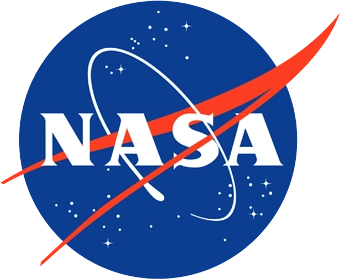Early Career Scientist Spotlight
Dr. Armaghan Abed-Elmdoust
Hydroscientist
Hydrological Sciences Laboratory
What motivated you to pursue a career in hydrology?
Being a hydrologist is not the outcome of a decision made due to an accident or a single event! The pursuit of interests over a long time led me here. I recall a pleasant experience with my very first encounter with mathematics since early stages. Starting from those early times, I found myself spending so many hours a day quietly playing with math problems. Apparently, I had found my topic of interest! The only issue was that I did not know many other kids who were interested in math, so I would line my dolls and pets, teaching them all I knew about math, so enthusiastically. The middle school and high school that I attended both had a specific focus on math and physics. We completed rigorous course work focused on different subjects of mathematics and physics and, now that I think about it, these courses helped me a lot to build a solid background for future efforts.
When it was the time to choose a college major, I considered pursuing engineering, to possibly make an impact on human life. Growing up in a country that has a long history of drought and issues with limited water resources, I decided to study hydrology, hydraulics, and water resources in college. During my M.Sc. studies, I became more and more interested in applying system modeling to solving real world problems in hydrology and water resources. At the same time, I was attending additional classes to learn more about the state-of-the-art methods in simulation, optimization, machine learning, etc.
I continued to pursue a Ph.D. in civil engineering (water resources management). This topic was at the borders of hydrology, management, and modeling. My doctoral work was focused on using game theory to find an optimal solution for an inter-basin water transfer project. I received an award for the Best Doctoral Dissertation for this work. After completing my doctoral work, I decided to move to the United States to have the opportunity to continue research, and to work with the leading scientists in my area of research. I spent two years as a postdoc at the University of Texas at Austin, which was a great experience, and then I joined a startup company and continued working on hydrological modeling. Finally, I decided to join NASA, where big things are happening. I am currently in the core hydrology group that developed the Land Information System (LIS) -- a platform that integrates satellite and ground observations with advanced mathematical models.
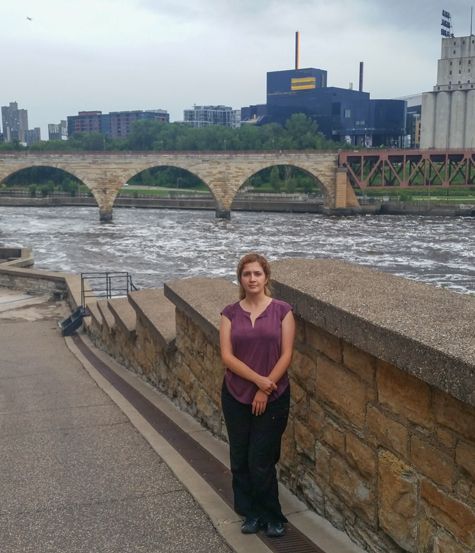
Credit: Armaghan Abed-Elmdoust
What do you enjoy the most about your job?
I have always been passionate about applied sciences. The whole idea of describing natural systems with mathematical models that can explain our observations is something that I always been fascinated about. Also, my work involves learning new things, and that keeps me intellectually active. Moreover, my work environment is filled with brilliant scientists and I enjoy working with them closely on many interesting topics.
What is your research focus?
Traditional models in hydrology, like many other areas of engineering, are based on solving equations that embed the laws of physics. This, of course, has been a highly successful approach toward modeling natural systems since the age of Newton. However, we are now entering an era where we have more data than ever before. On the other hand, recent developments in machine learning have revealed promising routes for building models that are learned solely from the data. My most recent research project is focused on using such data-driven methods in conjunction with established physics-based models in land surface modeling, in order to have an accurate description of important variables such as soil moisture.
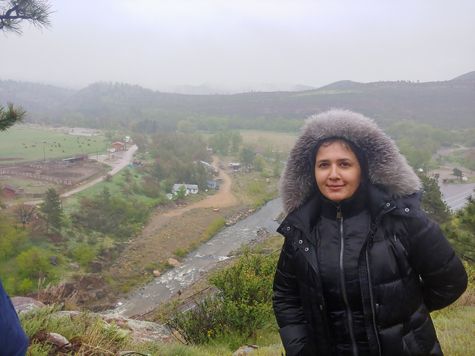
Credit: Armaghan Abed-Elmdoust
What is one research project that you are particularly excited about, and why?
One of the most exciting projects that I am currently working on is investigating the sources of uncertainty in land surface modeling. Goddard is pioneering one of the most rigorous systems for land surface modeling, called the Land Information System (LIS). However, as in any system model, LIS involves uncertainties that can be hidden in the input data or in the underlying model parameters. My most recent project deals with developing schemes for estimating the uncertainties associated with soil moisture prediction capabilities of LIS. From the application point of view, this is a very important subject. This research can potentially help many other topics of research including flood and wildfire predictions. I am currently working on several methods to explore this aspect. In particular, I am using machine learning as well as statistical methods to tackle this problem.
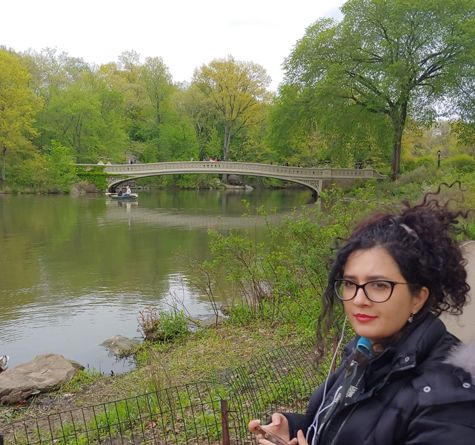
Credit: Armaghan Abed-Elmdoust
Who inspires you?
I think role models are especially influential at the early stages of one’s life. In my case, I recall a particular event when I visited the tomb of Avicenna, a tenth century polymath. As a child, I was touched by stories about his dedication to science, and I was so inspired to see his personal notes. Such types of experiences, in my opinion, make long lasting effects on one’s life and career path. Apart from that, I can point towards certain people who inspired me during different stages of my academic path. Most importantly, my parents, my doctoral advisor at the University of Tehran, Prof. Reza Kerachian, and my postdoctoral advisor at the University of Texas, Prof. Zong-Liang Yang. There were others, including Prof. Chris Paola, Prof. Soroosh Sorooshian, and Prof. David Maidment, with whom I have only had brief interactions, yet they inspired me with their moral standards and humble personalities on top of their scientific contributions to the community. Moreover, I have also been constantly inspired intellectually by reading the works of pioneering scientists in my field of research. Every time that I read an interesting article, I search the web for the authors. In many cases, I come across short bios of people from not-so-glorious institutions, who may not have received the fanciest awards either. Yet, regardless, they produced important research. I have the absolute respect for all those individuals. Those are true inspirations.
What do you like to do in your free time?
I am a big pet lover. In my spare time, I like to spend time with my dog. I also enjoy spending time with my family and watching comedy shows and movies.
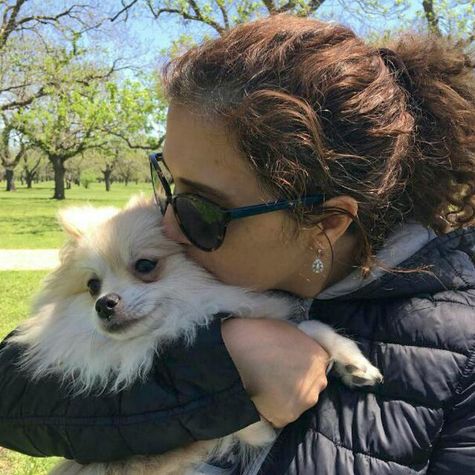
Credit: Armaghan Abed-Elmdoust
What are your future research interests and goals?
I have been doing research focusing on different aspects of water resources and hydrological sciences for more than 10 years. In comparison to the lifespan of these fields, a decade is almost nothing, but even within this time period, I have already felt the dynamics of these fields and the scientific communities involved. There is constant progress in modeling tools, in measurement techniques, and in data, and this constantly inspires new directions and opportunities for doing high impact research. I believe that a major role of a good researcher is to stay up to date with cutting edge research, by attending conferences, by interacting with other researchers, and by dedicating time to reading research articles.
My future research activities will be centered on sustainable water resources management and improving hydrological modeling. I am constantly looking for new ideas for developing innovative methodologies in these areas. Sustainable management of water resources is a critical subject to human societies, and its importance is becoming more and more evident with growing global awareness about climate change. Also, the ability to reliably predict extreme events, such as floods and droughts, requires an integrated hydrological modeling framework that takes into account hydrological, land surface, and atmospheric modeling, as well as the impacts of human activities. The infrastructure to see all of these aspects together under a unified modeling system did not exist in the past. But, in my opinion, we are now approaching such capabilities, and this creates plenty of room for innovative research. I would like to be a part of the next revolution in hydrological modeling, and I hope to make an impactful contribution to this field.
Biography
Home Town:
Tehran, Iran
Undergraduate Degree:
B.Sc. in Agricultural Engineering (Irrigation and Drainage), University of Tehran, Tehran, Iran
Post-graduate Degrees:
M.Sc., Civil Engineering (Hydraulic Engineering), University of Tehran, Tehran, Iran
Ph.D., Civil Engineering (Water Resources and Hydrology), University of Tehran, Tehran, Iran
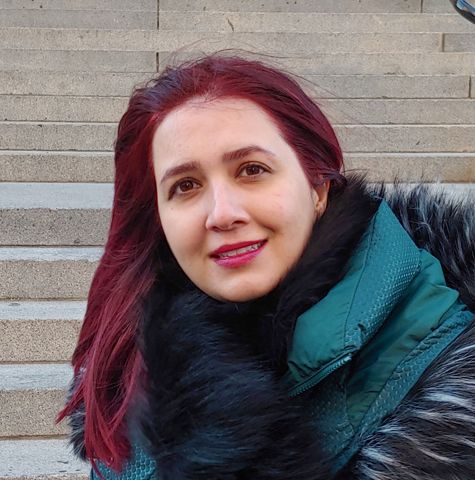
Link to Dr. Abed-Elmdoust's GSFC Bio
